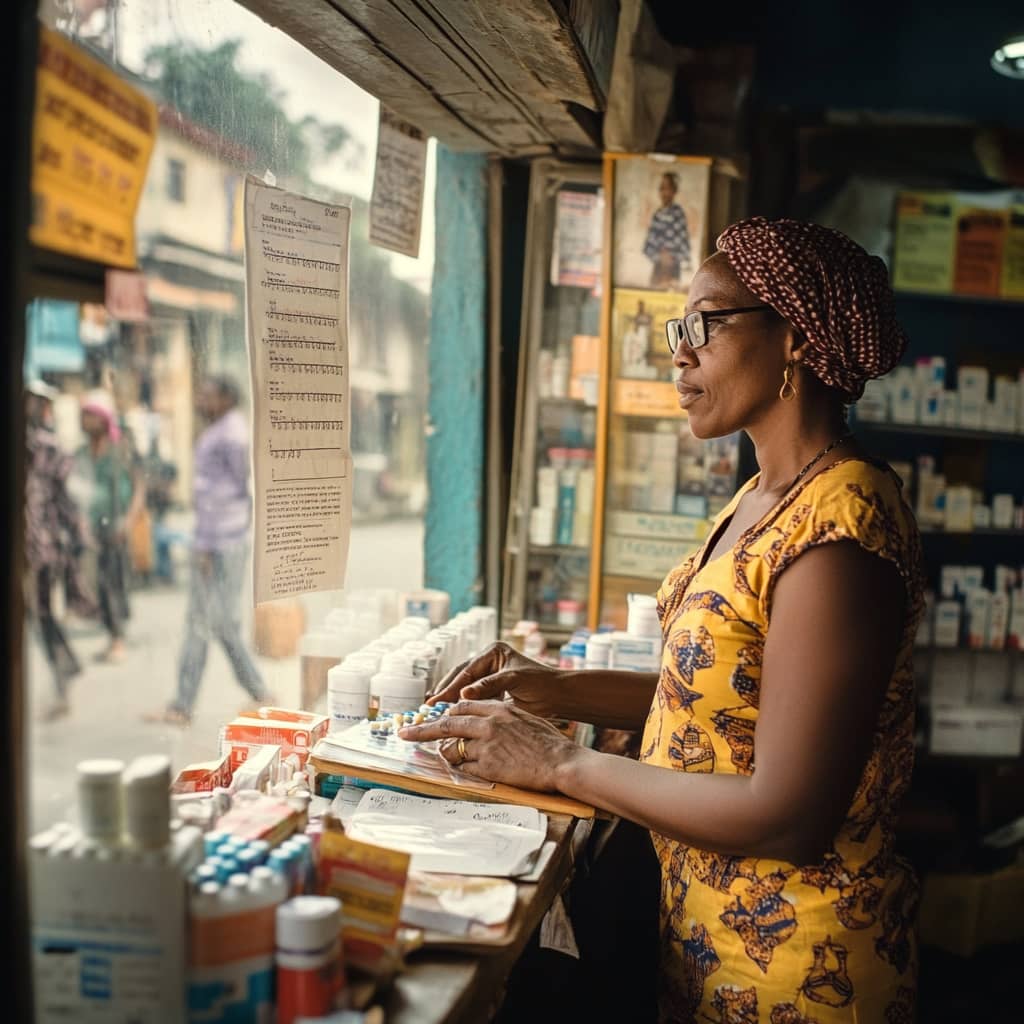At the edge of a busy roundabout in Benin City, a small, brightly lit pharmacy is tucked between a tailoring shop and a food stall. Inside, Mrs. Adesuwa stands behind the counter, sleeves rolled up, glasses hanging crookedly on her nose, one side higher than the other, answering questions, packaging medications, and checking her logbook like she’s done for over 15 years.
But in the past year, something fundamental has changed.
“I used to just fill prescriptions,” she says. “Now, I see my work differently. I see people, not just pills.”
Before partnering with Retroviral Solutions (RVS), Mrs. Adesuwa never stocked antiretrovirals (ARVs). Not because she didn’t care, but because very few asked. And without training or a trusted supply chain, she wasn’t sure it was her place.
When the US funding halted, she noticed that the number of clients who came to ask for ARVs increased.
“Even if someone hinted, they always whispered,” she recalls. “There was too much fear of being seen, of being judged. And I didn’t want to make a mistake with such sensitive treatment.”
Things shifted when RVS introduced her to their Private Refill Access Program (PRAP), offering her:
-
Hands-on training
-
Confidential dispensing protocols
-
Consistent ARV supply.
Mrs. Adesuwa began offering discreet pick-up services for stable HIV clients, especially those who had quietly dropped out of hospital care.
The first few clients were cautious; one woman pretended to browse cold medicines before quietly asking for her refill. But within weeks, word spread. The setup was discreet. No stigma. No judgment.
Her backroom now doubles as a private handover space. She maintains refill calendars, follows up on missed pickups, and sends SMS alerts.
“One woman, a hairdresser, cried the first time I handed her meds,” she says. “She said this was the first time she felt safe getting treatment in years.”
Today, Mrs. Adesuwa manages over 60 retained clients, many of them women who’d stopped going to clinics out of fear of stigma.
She doesn’t just give them medicine. She offers them a way back into care without shame.
“Before this, I didn’t know I could be part of the solution. I thought HIV care belonged only to big hospitals,” she says. “Now, I know that one quiet pharmacy can change many lives.”
Her outlook has shifted from transactional to transformational.
She mentors two junior staff on confidentiality and patient rapport. And she recently encouraged another pharmacy in her neighborhood to join the RVS network.
Today, Mrs. Adesuwa advocates for more pharmacies to join. She believes decentralized care is not just practical, it’s humane.
“I’ve seen the difference. It’s not just access to drugs, it’s access to dignity,” she says, a quiet pride in her voice. “And that’s something every pharmacist should be part of.”
Mrs. Adesuwa shows what’s possible when trust, training, and purpose meet.
We’re building more stories like hers. Will your pharmacy be next?

